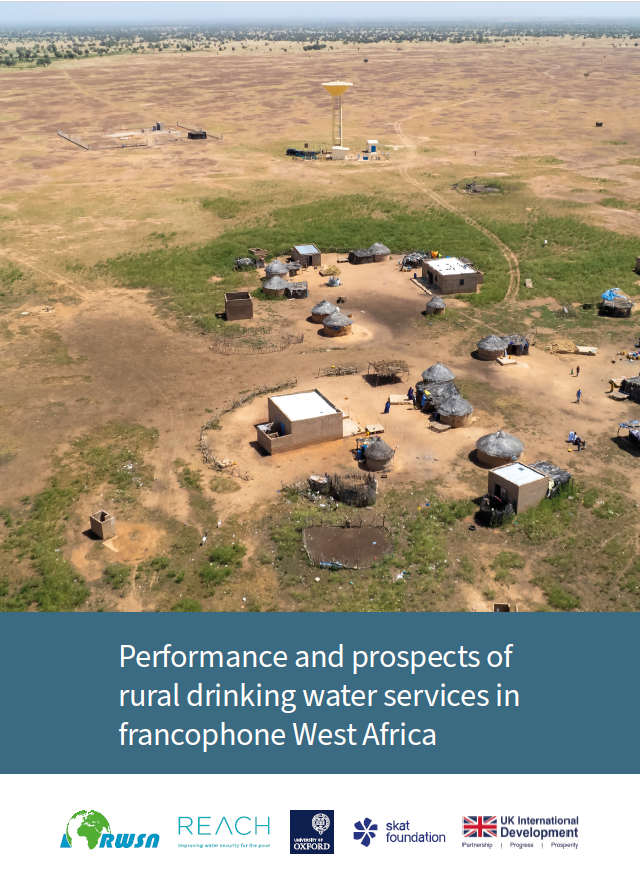Authors: Meleesa Naughton, Johannes Wagner, Rob Hope, Sean
Furey and Aline Saraiva Okello
This study looks at the evolution of rural water supply policies in francophone West Africa and the performance of the delegation of rural water services. Since the 1980s, rural water services have been predominantly managed by community-based organisations. In parallel, many countries have followed a decentralisation process and transferred the mandate for rural water services to the local level. The six countries reviewed in this study (Benin, Burkina Faso, Mali, Mauritania, Niger and Senegal) were selected given their long experience with the delegation of rural water services at the local level, some of them since the 1990s; and recent reforms in some of these countries towards re-centralisation of rural water mandates and delegation of rural water services at a much wider regional scale (Mauritania, Senegal and Benin).
One of the key messages of the report is that the delegation of water services in rural areas is not a panacea, or claiming to be the sole alternative to community-based management. In many countries there is a gap between theory and practice, with alternative models for rural water services delivery co-existing with informal arrangements, where services should have been delegated. Increased efficiencies and better performance of service provision are a key factor for motivating these reforms. West African countries have experimented with clustering/ aggregating/ consolidating infrastructure to delegate rural water services at the scale of several municipalities, a district or a region, including through contracts to regroup several local authorities, such as (i) Design, Build and Operate contracts (DBO), (ii) regional delegation of rural water services, and (iii) intermunicipal arrangements. This study identifies some of the key questions in this ongoing debate, which necessitate further reflection.
• Will the move to re-centralise rural water service authorities improve financing, performance monitoring and asset management?
• Where decentralisation is ongoing, what will the role of local stakeholders (including local government) be in countries that have recently re-centralised the rural water sector? Will they be able to hold service authorities and operators accountable?
• In contexts where it has been decided not to subsidise rural water tariffs, how should water services delivery be funded sustainably while ensuring equity between rural and urban residents?
• Will regulation evolve to ensure the sustainability of rural water services under delegation?
• In contexts where international expertise is needed to deliver universal rural water services in the short-term, how will local capacity be developed to ensure the sustainability of rural water services in the long-term?

